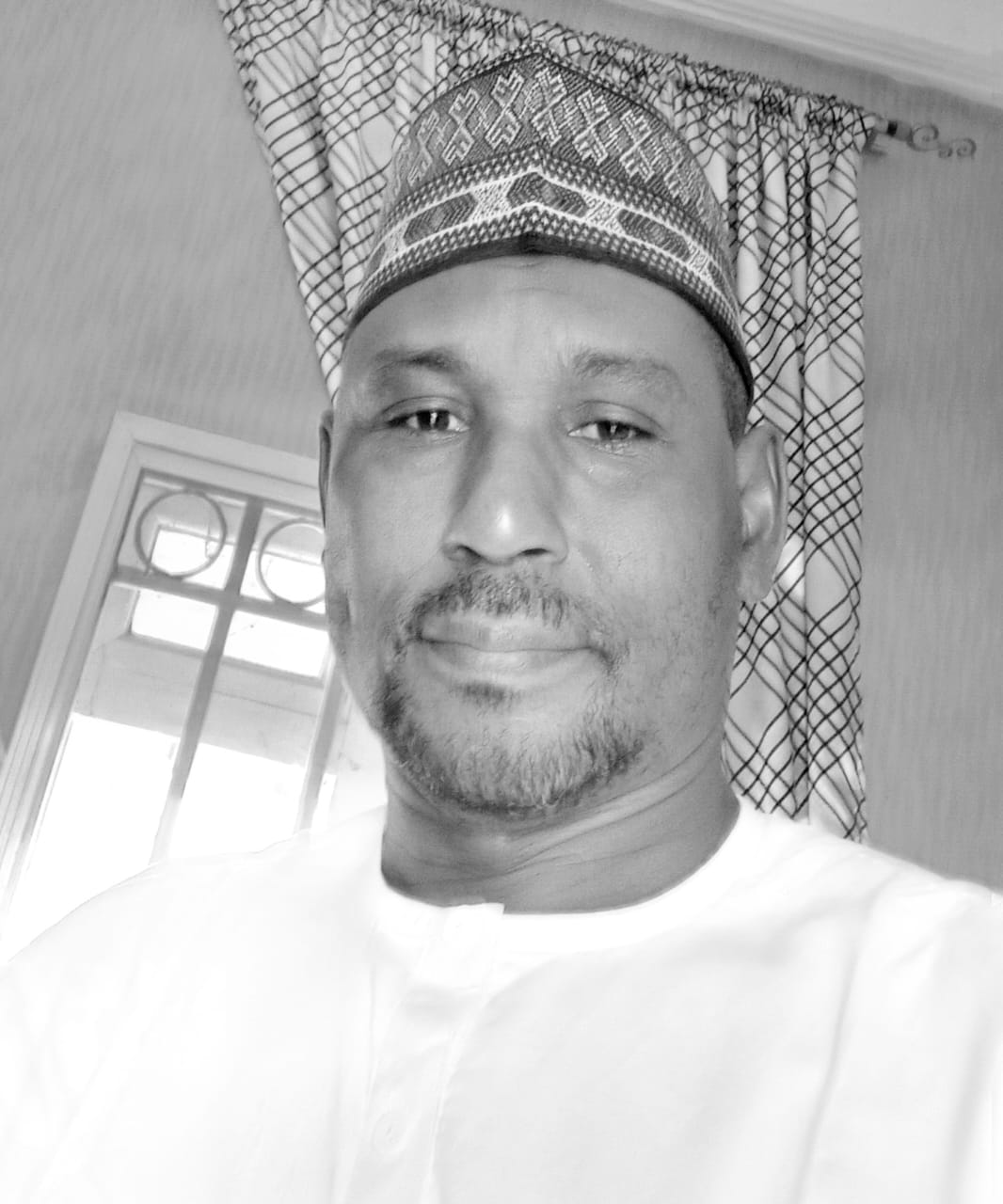Muhammad Bello, a journalist with DW, has been nominated for a peace award in the Niger Delta. He got the nomination for his role in promoting peace as well as helping to make the region a better place to attract more developments that will help improve the wellbeing of Nigerians living in the Niger Delta communities . In this interview, he shares some of the experiences of starting out as a classroom teacher to becoming a journalist.
How would you describe your journey from classroom to newsroom?
The journey so far is a successful one but obviously not without some challenges. In fact, I can say I found myself in the midst of journalism all of a sudden and it didn’t take me that long to catch up and blend, as if I was already in the cycle for long.
And I think my background as a professional teacher at primary, secondary and tertiary schools has helped me a lot in fitting right away without much hitches. I could remember, I was at the university of Nsukka, Enugu state, in the south, for my post graduate studies, around 2006, when I was tipped for the opportunity to become a Correspondent for the Voice of Germany Radio, DW, Hausa Africa service, for South South and South East. Looking at my initial profession, a teacher, I quickly saw an international opportunity, foreseeing a boost in the exploratory world. I resolved in my heart to gather all the courage, determination and commitment and I grabbed it. And today here I am after weathering lots of storms in a bid to do things right. Alhamdulillah.
What really motivated you to becoming a journalist?
Actually, I can say the motivation is in born, especially when I remember how at eight years old, I used to improvise myself with a cane or stick microphone, supported by sand, then while holding a paper or book, I would be reading out as if I was broadcasting; a very clear elicitation of passion naturally so to say. So that passion to be like a press man was there. But after taking to the teaching profession later in life or rather finding myself in the teaching line, it didn’t occur to me that I would one day switch to journalism. Because of the passion for journalism, I didn’t waste time to grab the opportunity of being one when it came. Journalism profession has really boosted my exploratory tendency both nationally and internationally.
For you, what does being a journalist entails especially in the Niger Delta creeks?
To practice journalism in the Niger Delta region, just like any other place on the planet earth, is a stance you take to begin to appreciate the uniqueness of a given people, their region, an oil gas region, their culture and social nature. Though one would appreciate how the region is seen from a far as being a crisis region, with militancy almost every where, which I later learnt it wasn’t militancy but rather agitation for freedom, because of feeling of disregard for their existence as humans by oil multi nationals and of course they always stressed the Nigerian government that gave the oil companies licenses to exploit their region for resources, with out regards for their environment and the people. To be a journalist in the Niger Delta, one should gather the courage of a soldier, because you are to take a trip to very many places in the area that are way too risky to get stories.
You use speed boat that could easily tumble, passing small and large Rivers peaceful and hostile communities, just to see for your self realities of region for you to make a story. One should also be ready to meet the agitators who always carry weapons of all kinds, you speak with them with confidence, before later perhaps you eventually build good relationships, that make them have feelings of confidence in you too, so they can tell you anything you want to hear.
As a journalist in the region you look at the people, their environment, the workings of operations of oil companies, the joint task force ,oil bunkering activities and all that. Also you should understand that I also cover the south East region, Igbo land, in my reportage. This also draws me closer to agitators of Biafra,an opportunity to know the very complexities of their separatist movement to secede from Nigeria to form a separate independent nation they call Biafra. In the south East also you look at their devastating environment in the form of erosion, their economic activities, their rich cultures and politics. There are indeed whole lots of stories indeed to tell the world.
Any regret thus far since leaving the classroom as a teacher?
Not all, no regret honestly. Because I see journalism as a step further in teaching. Definitely, I see both journalism and teaching as incredibly beneficial to society though in different ways. Journalists you play a crucial role in informing the public, uncovering important stories, and holding individuals and institutions accountable. They help keep the public informed about current events, and their work can lead to positive changes in society. On the other hand, teachers play a vital role in shaping the future by educating and inspiring the next generation. They have a direct impact on the lives of young people, helping them develop the knowledge and skills they need to succeed. Both careers contribute to the betterment of society in their own unique ways. So technically, after you are taught in the class as to how to do things in life as a government official for example, I for one, appreciate the task of ensuring that they do them right according to the rules, if not then I will report you to the public for them to judge you.
How did you receive the news of your nomination for a peace award?
Honestly ,I didn’t see it coming, I never imagined it ,so it just came by the grace of Allah. And honestly I feel honoured and very happy that the people of the region you work find it worthy to honour you. It’s really dignifying, and will go down the history lane indefinitely. And I really thank Allah and the Foundation for Peace and Non Violence movement for their gesture. Actually I can say this is an honour done to me by the Niger Delta people, an honour to the Germany Broadcasting services of Hausa and English for Africa.
What does the nomination for a peace award mean to you?
It means inspiration for me to do more in the good things I have been doing in my reportage, and an inspiration to an upcoming generation of journalists wishing to practice in the Niger Delta or any where else.
How would you describe the people of Niger Delta being a Northerner?
Ans: The very very interesting part of the interview is now popping up. The Niger Delta people are very friendly and peace loving, that is if you really want to make peace with them. Niger Delta is an heterogeneous society with several ethnic groups including the Urhobo, Delta Ibo, Isoko, Itsekiri, Ijaw (or Ezon) and Ukwuani groups in Delta State. The economic life of the people of the Niger Delta is largely determined by their environment. Those who live around the coastal areas are largely fishermen and traders, whereas those in the hinterland cultivate food crops such as cassava, yam, vegetables etc, and cash crops such as oil palm and rubber. Though activities of oil companies have affected the ecosystem entirely, destroying it almost completely through massive oil spill in rivers where the people fish, and spilling uplands even destroying farms and their sources of drinking water. Gas flaring too is another disaster risk to these easy going people. When you travel deeper into the creeks, you see communities living in the midst of all these hazards which you and many people will not tolerate. And these were some of the issues that pushed for militancy so to say , to fight for their environment and for a fair share of the resources of oil and gas being drilled from their area and some times from their backyard almost every blessed day. But thank God, perhaps after series of negotiations, the region and the people are calm now and oil operations area going on uninterrupted. In fact Nigeria whose OPEC Quota was 1,700,000 barrels a day, heightened militancy had to bring it down to 700, 000 barrels a day around 2015 to 2016.

 Join Daily Trust WhatsApp Community For Quick Access To News and Happenings Around You.
Join Daily Trust WhatsApp Community For Quick Access To News and Happenings Around You.


